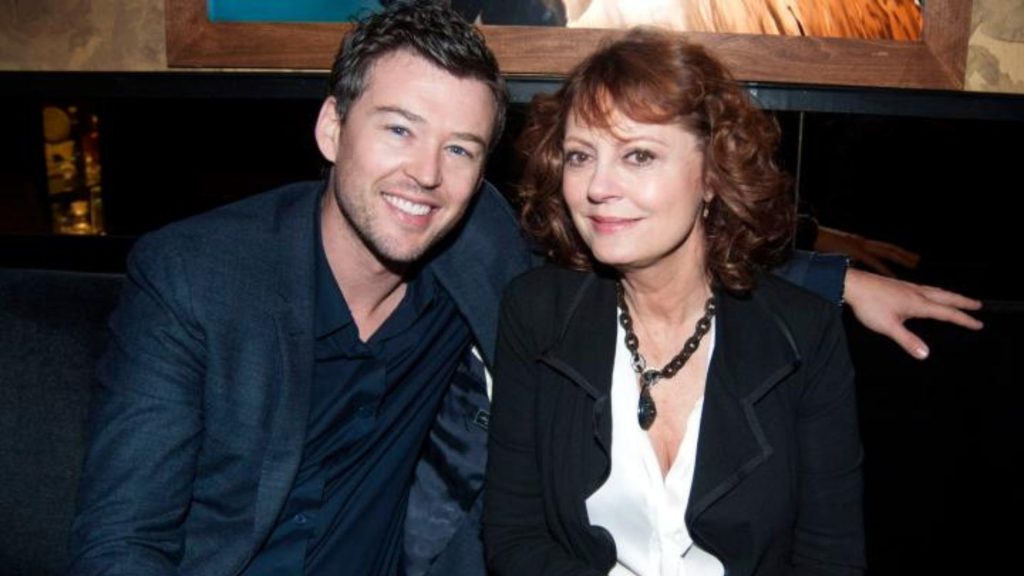Susan Sarandon, a renowned American actress, was born on October 4, 1946. Her illustrious career has been adorned with numerous accolades, including an Academy Award, a British Academy Film Award, and a Screen Actors Guild Award. She has also received nominations for a Daytime Emmy Award, six Primetime Emmy Awards, and nine Golden Globe Awards. In 2002, her contributions to the cinematic world were recognized with a star on the Hollywood Walk of Fame.
Susan Sarandon’s acting journey commenced in the 1970s with her appearances in the drama film “Joe,” the soap opera “A World Apart,” and the television film “F. Scott Fitzgerald and ‘The Last of the Belles.'” Her breakthrough came in 1975 when she portrayed Janet Weiss in the cult classic musical comedy horror film “The Rocky Horror Picture Show.”
“Beyond her professional accomplishments, Susan Sarandon’s husband has also garnered significant attention. Her relationships and outspoken views, particularly her controversial comments about Judaism and Islam, have sparked discussions and debates among the public. Let’s delve into these aspects of her life and explore the complexities they present.”
Know About Susan Sarandon Husband
Susan Sarandon’s romantic life has been as rich and varied as her acting career. Her first marriage was to fellow actor Chris Sarandon, which lasted from 1967 to 1979. After a brief live-in relationship with director Louis Malle, Sarandon engaged in a series of shorter-term relationships with musician David Bowie, actor Sean Penn, and Italian filmmaker Franco Amurri. With Amurri, she had a daughter, Eva Amurri.

In 1988, Sarandon met actor Tim Robbins while filming “Bull Durham.” They began a long-term partnership that lasted 21 years and produced two sons, Miles and Jack. Sarandon and Robbins, both liberal and sharing lapsed Catholic backgrounds, separated in 2009.
Following her split with Robbins, Sarandon entered a relationship with Jonathan Bricklin, son of entrepreneur Malcolm Bricklin. Together, they established a chain of ping-pong lounges named SPiN, with Sarandon co-owning the New York club and its Toronto branch. Their relationship ended in 2015.
Also Read: Who Is Camilla Luddington’s Husband? Relationship Info With Matthew
Sarandon has expressed openness to same-sex relationships, identifying as bisexual in a 2022 appearance on “The Tonight Show Starring Jimmy Fallon.” She had previously hinted at her fluid sexuality in interviews, emphasizing that her dating interests are not limited by gender, age, or race.
Susan Sarandon’s Anti-Semitic Remarks Lead To Agency Drop
Academy Award-winning actress Susan Sarandon has been dropped by her Hollywood agency, United Talent Agency, following inflammatory remarks she made about the Israel-Hamas conflict. Sarandon’s comments, which equated the experiences of Muslims in America to those of Jews during the recent conflict, have been widely condemned as anti-Semitic.

The controversy began on November 17 when Sarandon, speaking at a pro-Palestinian rally in New York City, stated, “There are a lot of people afraid, that are afraid of being Jewish at this time, and are getting a taste of what it feels like to be a Muslim in this country, so often subjected to violence.”
Her remarks sparked immediate backlash, with many accusing her of perpetuating anti-Semitic stereotypes. The United Talent Agency, citing the “extremely disturbing” nature of Sarandon’s statements, announced its decision to terminate its representation of the actress.
Sarandon, despite the widespread criticism, has defended her comments, maintaining that she was simply trying to empathize with the plight of both Muslims and Jews. However, her explanations have done little to quell the anger and disappointment expressed by many.
Also Read: About Joshua Dobbs’ Wife And Vikings Coach Questions Jackson’s Hit
The incident has reignited discussions about anti-Semitism and the need for greater sensitivity when addressing complex social and political issues. Sarandon’s remarks, while intended to promote understanding, have instead served as a reminder of the dangers of making sweeping generalizations and reinforcing harmful stereotypes.

